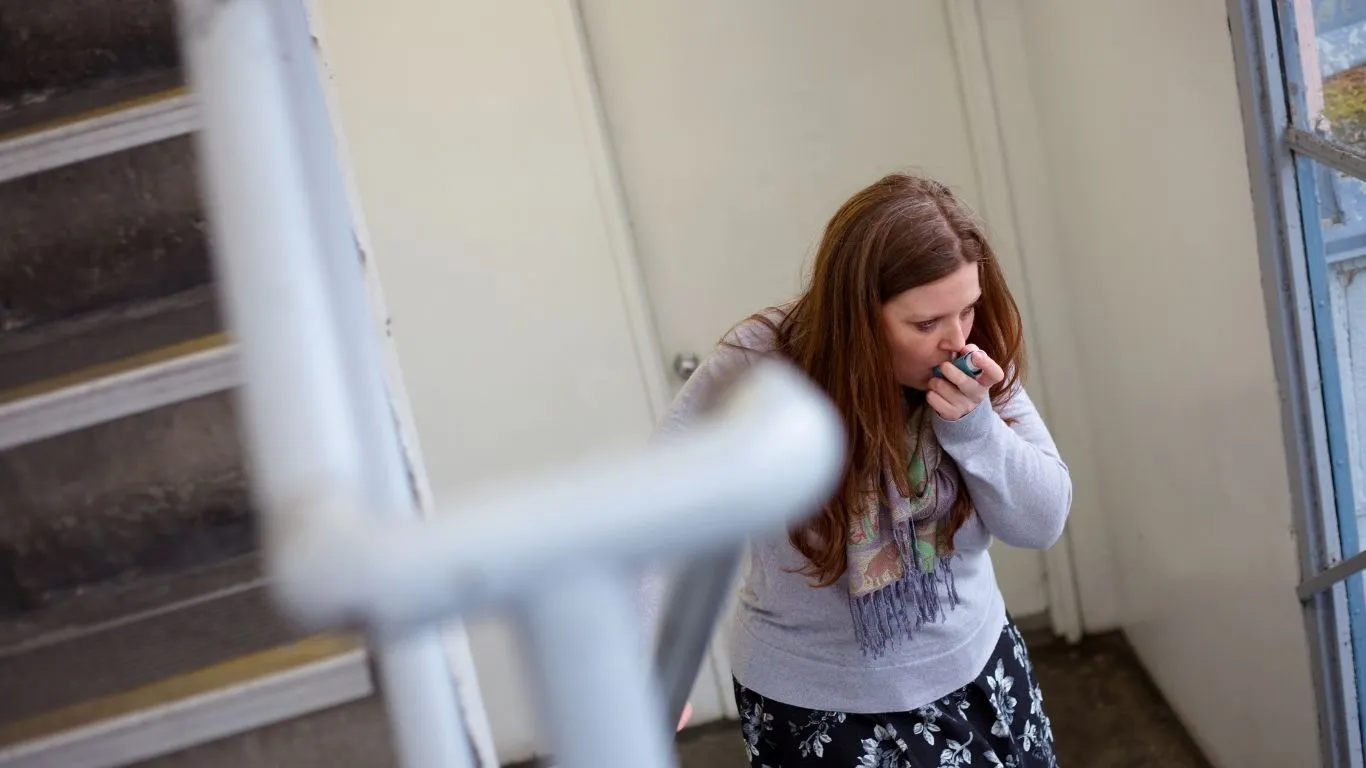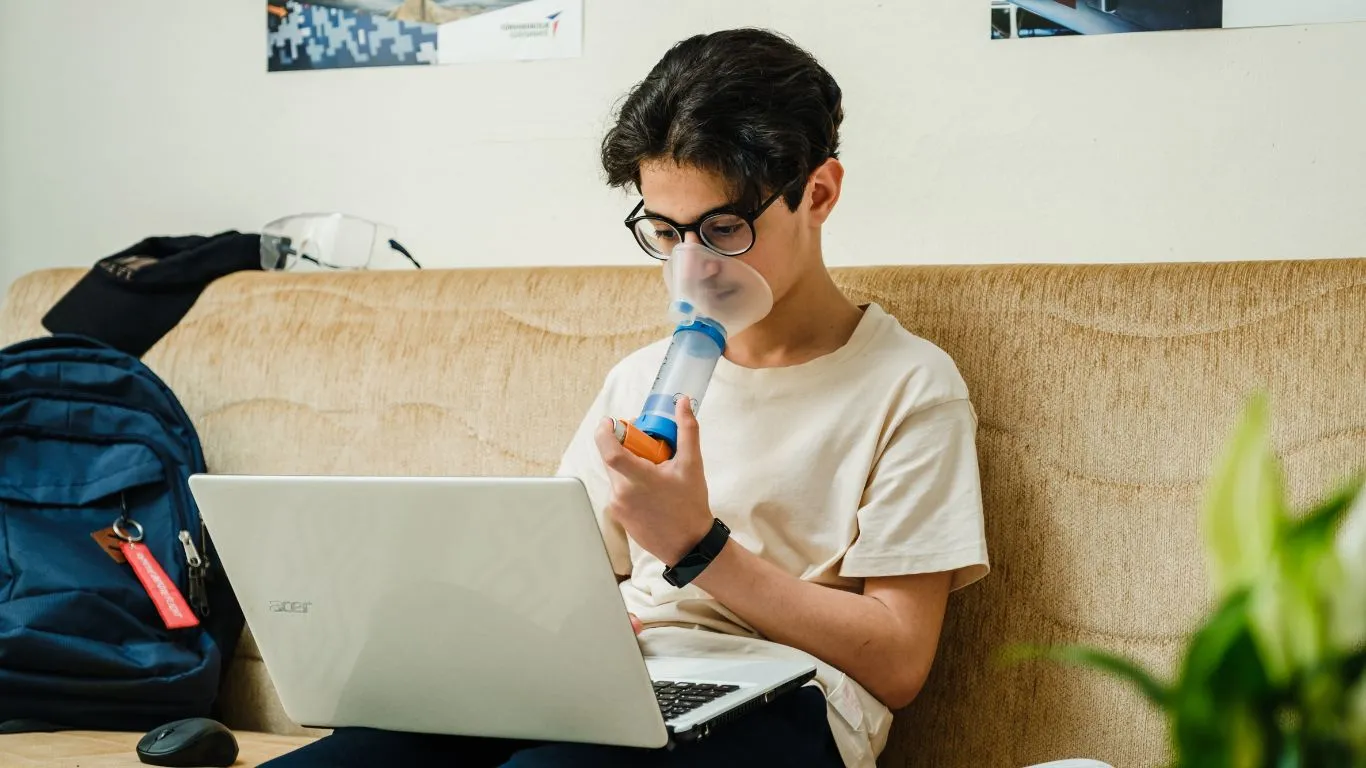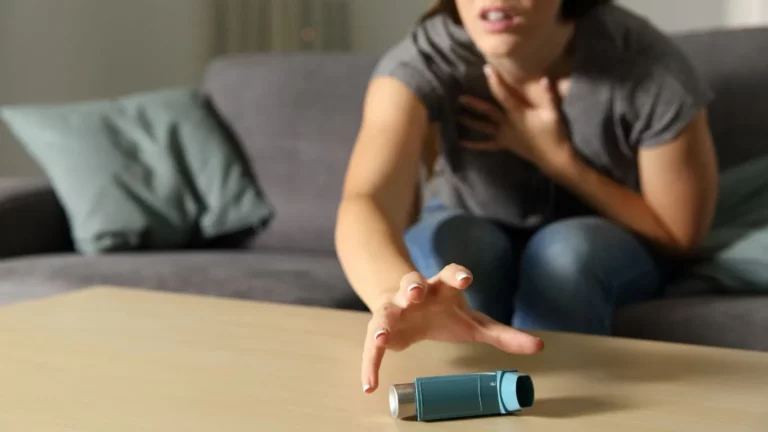Effective Ways to Manage Asthma Symptoms Triggered by Perfume
As a Pulmonary Nurse, I’ve seen firsthand how something as seemingly harmless as perfume can trigger asthma symptoms in patients. It’s always baffling to hear someone tell me that their asthma flares up after they encounter a fragrance, whether it’s from a bottle of cologne, scented lotion, or even a flower arrangement. As I dig deeper into the connection between asthma and perfumes, it becomes clear that this is more common than most people realize. Perfumes and other scented products contain chemicals that, while pleasant to many, can set off a variety of symptoms for people with asthma. If you’re someone who has asthma and finds yourself struggling to breathe around certain scents, you’re not alone. Let’s explore how asthma symptoms can be triggered by perfume and what you can do about it.
What Causes Asthma Symptoms Triggered by Perfume?

Before diving into the specifics, let me just say—everyone’s asthma is different. As a nurse, I know that triggers can vary widely from person to person. But one common culprit that I’ve seen time and time again is perfume. So, why does something as delightful as perfume have such an impact on people with asthma?
Perfume is made up of a complex mixture of chemicals, including fragrance compounds, alcohols, and preservatives. When people with asthma inhale these substances, their respiratory system can become irritated. This can lead to a range of symptoms, from coughing and wheezing to more severe issues like shortness of breath and chest tightness.
Many of these chemicals are considered volatile organic compounds (VOCs), meaning they can easily vaporize into the air and be inhaled. For people with asthma, even small amounts of these VOCs can be enough to trigger a reaction. It’s the body’s inflammatory response that sets off asthma symptoms, and the more sensitive a person is, the more likely they are to react.
The Role of Scent Sensitivity in Asthma
It’s important to note that not all perfumes will trigger asthma symptoms in everyone. However, for people who have a heightened sensitivity to scents, the exposure to certain perfumes, even in small amounts, can lead to flare-ups. This condition is known as olfactory sensitivity, and it’s more common than you might think.
In my years of experience, I’ve encountered many patients who describe feeling fine most of the time but suddenly finding themselves struggling to breathe when walking past someone wearing a strong fragrance. In some cases, it’s not even the scent itself but the chemicals used to create it that cause the issue. The body can react to these chemicals much like it does to pollen, dust, or mold, producing the familiar asthma symptoms we all know too well.
Common Asthma Symptoms Triggered by Perfume

Asthma symptoms can vary, and for some people, a small exposure to perfume might lead to nothing more than mild irritation. But for others, the effects can be much more severe. Here are the most common asthma symptoms I’ve seen triggered by perfume:
- Wheezing: This is the high-pitched sound that occurs when breathing, often due to narrowed airways.
- Coughing: A persistent cough is often a sign of asthma flare-ups, especially when triggered by perfumes or other irritants.
- Shortness of breath: If you’re having trouble getting air in or out, it might be due to asthma symptoms triggered by scents.
- Chest tightness: Many people with asthma report feeling like there’s a weight on their chest, especially after being exposed to strong perfumes.
Even though these symptoms can vary, the key is that they’re all tied to irritation of the airways. In my experience, I’ve seen many patients struggle with these symptoms after a seemingly harmless encounter with perfume. For some, it’s a matter of merely walking by someone wearing strong cologne or stepping into a room with a scented candle. For others, it might take longer exposure or a stronger scent to set things off.
Perfume as an Indoor Air Pollutant
One thing that’s often overlooked is how perfume can act as an indoor air pollutant. While we usually associate air pollution with outdoor sources like traffic or industrial emissions, indoor air can be just as harmful, especially for those with respiratory conditions like asthma. Perfumes, candles, air fresheners, and even cleaning products can all release VOCs into the air, impacting the air quality inside your home, office, or even a public space.
In a confined space, these chemicals can linger in the air longer, making it even harder for people with asthma to avoid exposure. I’ve had patients tell me they struggle with asthma flare-ups in places where the air feels stuffy or stagnant—like in a hotel room, an office building, or even at a friend’s house. These indoor environments can be breeding grounds for asthma triggers, and perfume is often the silent culprit.
Why Are Some People More Sensitive to Perfume Than Others?

Everyone reacts differently to environmental triggers, and perfume sensitivity is no exception. Some people have more reactive airways due to genetics or underlying conditions. For instance, those with a history of respiratory issues, like chronic rhinitis or sinus infections, may be more susceptible to perfumes triggering their asthma symptoms.
Another factor is environmental exposure. If you’ve lived or worked in a space where perfumes or air fresheners were frequently used, your body may have become sensitized over time. This means you might have been fine the first few times you encountered these fragrances, but now your body is reacting more strongly. It’s a process that happens gradually, and it’s something I’ve observed many times in my nursing practice.
Lastly, some individuals may have an allergic reaction to specific ingredients in perfume. For example, certain floral scents or citrus notes can trigger allergy-like symptoms, which in turn can worsen asthma. This is where things can get tricky, as perfume ingredients can vary widely depending on the brand, and sometimes the specific culprit can be hard to pinpoint without proper testing.
How to Minimize Asthma Symptoms Triggered by Perfume

If you’re someone who experiences asthma symptoms triggered by perfume, you’re probably wondering what steps you can take to reduce the chances of flare-ups. As someone who’s worked closely with asthma patients over the years, I can tell you there are a number of strategies that can make a big difference. Managing asthma symptoms, especially when triggered by something like perfume, is all about making conscious decisions and being proactive about avoiding triggers.
1. Avoiding Scented Products
One of the most obvious ways to minimize asthma symptoms triggered by perfume is to avoid scented products altogether. I know that this can be tough, especially when perfume is such a big part of personal care routines. But if you have asthma, you may need to rethink your relationship with fragrances. Here are a few things to keep in mind:
- Choose fragrance-free products: Many skincare and beauty products now offer fragrance-free alternatives. These options are less likely to irritate your airways and trigger asthma symptoms.
- Switch to essential oils: If you still want to enjoy pleasant scents, opt for natural essential oils. However, be cautious—some essential oils can still cause reactions in sensitive individuals, so it’s important to test them out in small amounts first.
- Clean your environment: Regularly cleaning your home or workspace can help eliminate the buildup of perfumes and scented products that linger in the air. For example, use unscented cleaning products and consider airing out rooms frequently.
In my experience, many patients find that making these small changes can lead to significant improvements in their asthma symptoms. It may take a little time to adjust, but it’s worth it for the relief it can bring.
2. Communicate with Others About Your Needs
Another key strategy is communication. As I’ve often reminded my patients, they have every right to ask people around them to be mindful of their asthma triggers. This might feel uncomfortable at first, but advocating for yourself is an important part of asthma management. Here are a few tips:
- Speak up at work: If you work in an environment where others wear strong perfumes, consider letting HR or management know about your sensitivity. It’s possible to create a more accommodating workplace by asking for a fragrance-free zone or setting guidelines about scented products.
- Request fragrance-free accommodations in public spaces: If you’re attending a meeting, going to a doctor’s appointment, or visiting a friend’s home, kindly let the host or organizer know that you’re sensitive to scents. Many people are unaware of the potential impact that perfumes can have on those with asthma, and a simple request can help prevent unnecessary discomfort.
- Educate your loved ones: Make sure your family and friends understand your asthma triggers. The more they know about how perfume affects your health, the easier it will be for them to support you in avoiding exposure.
Though these conversations might feel a little awkward, I’ve found that the vast majority of people are understanding when it comes to helping out with asthma-related issues. Plus, it’s empowering to know you can protect your health while still maintaining positive relationships.
Using Medication to Manage Asthma Flare-ups

While avoiding triggers is the best way to prevent asthma symptoms, sometimes it’s not possible to control every situation. There will be times when you come into contact with perfumes or other irritants despite your best efforts. When this happens, having the right medications on hand can make all the difference.
In my practice, I’ve seen how effective asthma medications can be at controlling flare-ups. Here are a few options to consider, though I always recommend discussing any new treatments with your doctor first:
- Inhalers: Quick-relief (rescue) inhalers are often used to address sudden asthma symptoms. These inhalers contain medications like albuterol that help open up the airways and make it easier to breathe.
- Long-term control medications: For those who experience frequent asthma flare-ups, long-term medications like inhaled corticosteroids or leukotriene modifiers can help reduce inflammation in the airways and prevent symptoms from occurring in the first place.
- Allergy medications: If your asthma is triggered by allergic reactions to perfume ingredients, your doctor might recommend antihistamines or other allergy medications to help reduce your sensitivity to these triggers.
Having the right medications at your disposal gives you a sense of control. I always advise my patients to make sure they carry their rescue inhaler with them, just in case they’re unexpectedly exposed to a trigger. Additionally, it’s crucial to follow your doctor’s prescribed treatment plan for long-term asthma management. Keeping your asthma under control with the right medications is key to living a healthier, more comfortable life.
Building a Fragrance-Free Zone at Home

One of the best ways to reduce the chances of asthma flare-ups at home is by creating a fragrance-free zone. This is a space where you can retreat and not worry about perfumes, air fresheners, or other scented products triggering your symptoms. Here are a few ideas for creating your own safe space:
- Choose unscented cleaning products: Many cleaning products, from surface cleaners to laundry detergents, contain fragrances that can irritate your airways. Opt for unscented versions to reduce the risk of exposure.
- Avoid using candles and air fresheners: Although they may make your home smell lovely, candles and air fresheners can release VOCs into the air that are harmful to those with asthma. Consider using an air purifier or opening windows to improve air circulation.
- Maintain proper ventilation: Make sure your home is well-ventilated to help clear out any lingering fragrances or chemicals. Fresh air is often one of the best remedies for asthma triggers.
Creating a fragrance-free zone in your home not only helps with asthma management but can also improve your overall air quality. Over time, you’ll notice that keeping the air clean and free of irritants can have a big impact on your breathing and overall health.
Long-Term Strategies for Managing Asthma Triggers

When it comes to asthma, managing triggers like perfume requires more than just immediate solutions. It’s about creating a lifestyle that minimizes the impact of these triggers over the long haul. In my experience as a Pulmonary Nurse, I’ve seen that patients who incorporate proactive, long-term strategies tend to experience fewer flare-ups and overall better control over their asthma symptoms. Let’s talk about a few long-term approaches that can help you better manage asthma triggers like perfume and maintain a healthier life.
1. Regular Monitoring of Asthma Symptoms
One of the key strategies for managing asthma effectively is regular monitoring of your symptoms. This allows you to stay ahead of any potential flare-ups and take action before things escalate. If you’re someone whose asthma is triggered by perfumes or other scents, it’s especially important to keep track of when and where your symptoms occur.
In my practice, I encourage patients to use an asthma diary. This is a simple tool where you jot down daily observations about your symptoms, potential triggers, and medications. By tracking your experiences, you can identify patterns and better understand what sets off your asthma. For example, you might notice that perfume triggers tend to be worse when you’re in certain environments, like a crowded event or an enclosed space like an office. Recognizing these patterns can help you avoid those situations in the future.
In addition to an asthma diary, peak flow meters can be an invaluable tool. These devices measure how well air moves through your lungs, giving you an idea of how well your asthma is controlled. They’re simple to use and can help you understand when your airways are narrowing, indicating a potential asthma flare-up. By keeping an eye on your peak flow readings, you can adjust your medication or take preventive steps before things get worse.
2. Allergy Testing and Personalized Treatments
As I mentioned earlier, some people with asthma may have a stronger allergic reaction to certain scents or ingredients found in perfumes. If you suspect that allergies are a major factor in your asthma symptoms, I recommend consulting an allergist for allergy testing. This can help pinpoint specific substances, such as certain floral scents or chemicals commonly used in fragrances, that may be causing your asthma to flare.
Once allergens are identified, your doctor can tailor a treatment plan that may include allergy medications, like antihistamines or even allergy shots (immunotherapy). For some, avoiding perfumes altogether is enough to reduce symptoms, but for others, a more comprehensive allergy management plan may be necessary. Personalized treatments can significantly reduce the impact of asthma triggers and improve your overall quality of life.
Creating an Asthma-Friendly Environment

As you continue to make adjustments to reduce your exposure to perfume triggers, it’s also helpful to consider your environment. Creating an asthma-friendly space in your home or workplace is one of the most effective ways to protect yourself from harmful triggers and maintain control over your asthma. Here’s how you can make your space more asthma-friendly:
- Air purifiers: Using a high-quality air purifier with a HEPA filter can help remove allergens and pollutants from the air, including those from perfumes and scented products. I’ve seen many patients benefit from this simple yet effective solution, especially those who spend a lot of time indoors.
- Ventilation: Ensuring proper ventilation in your home or office is essential. Open windows whenever possible to allow fresh air to circulate, especially if you’ve been in a space with strong fragrances or other potential asthma triggers.
- Regular cleaning: Dust and allergens can accumulate in your home, worsening asthma symptoms. Regular cleaning—especially vacuuming with a HEPA filter—can help eliminate these irritants and keep the air cleaner.
- Fragrance-free home: Make your living space a fragrance-free zone by using unscented cleaning products, candles, and air fresheners. This is one of the easiest ways to ensure that you’re not unknowingly exposing yourself to perfume-triggered asthma symptoms.
By creating an asthma-friendly environment, you can make a big difference in how your body responds to potential triggers. It doesn’t take drastic changes—just a few thoughtful adjustments can go a long way in minimizing the impact of scents and perfumes on your health.
Resources for Asthma Management and Support
Living with asthma, especially when dealing with triggers like perfume, can be challenging, but the good news is that there are plenty of resources available to help you manage your condition effectively. I always encourage my patients to seek out support and stay informed about the latest in asthma care. Here are a few reliable sources of information and support:
- National Institutes of Health (NIH) – The NIH provides up-to-date research, guidelines, and resources on asthma management and treatment options.
- Health.com – A trusted platform offering articles, tips, and insights into living well with asthma.
- Asthma and Allergy Foundation of America (AAFA) – This foundation provides resources, support groups, and advocacy for people living with asthma and allergies.
- Centers for Disease Control and Prevention (CDC) – The CDC offers comprehensive information on asthma symptoms, prevention, and management.
Additionally, don’t hesitate to talk to your doctor or a pulmonologist if you have any concerns or questions about your asthma care. They can offer personalized advice and treatment plans tailored to your specific needs.
Disclaimer
While this article offers helpful advice based on my experience as a Pulmonary Nurse, it is not intended to replace professional medical advice. Always consult with your healthcare provider before making any changes to your asthma management plan. Asthma triggers and symptoms can vary greatly from person to person, so it’s essential to work with your doctor to develop a treatment plan that works best for you.

Bianca Nala is a compassionate Nurse Practitioner with a strong background in primary and respiratory care. As a health writer for Healthusias.com, she combines her clinical expertise with a talent for clear, relatable storytelling to help readers better understand their health. Bianca focuses on topics like asthma, COPD, chronic cough, and overall lung health, aiming to simplify complex medical topics without losing accuracy. Whether she’s treating patients or writing articles, Bianca is driven by a single goal: making quality healthcare knowledge accessible to everyone.






